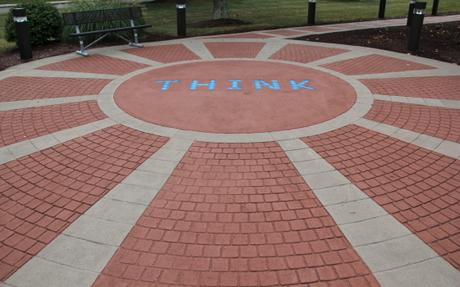
Have you noticed that in this blog the title of people who we refer to is not used? This is a conscious decision to make the reader evaluate the ideas rather than the person who is suggesting something.
Of course, this is a bit tricky since if you refer to a well-known person, everyone already knows all about the person. But the underlying idea is that readers should focus on the ideas rather than the person and what he or she has achieved so far in life.
A skilled thinker has developed the habit to always looking for positive, negative as well as interesting aspects with an idea. And a skilled thinker also knows that ideas are seldom perfect but can be used as a stepping stone to develop a better idea. Driven by curiosity there is a continuous search for interesting aspects.
In theory, ideas should be so powerful that regardless of the messenger or medium an idea can stand on its own and change the world. But in real life, great ideas are ignored and not evaluated. A famous person can suggest something mundane and still get lots of attention, while less famous people’s ideas are ignored. At a workplace, an idea suggested by a manager or team leader is regarded as great, but if an employee says the same thing it is ignored or regarded as moaning, non-constructive etc.
TED Talks have decided to create a platform of under-celebrated heroes. The talks are given anonymously. This is an opportunity for people who have the knowledge and the ideas but not the celebrity status to put forward their ideas. By not knowing who is suggesting something, you have to focus on the ideas and the message. Of course, this is something that we should do all the time.
Great ideas may also never reach a larger audience since a person may not like the spotlight or they may fear to lose their job or friends and loved ones. The chance to anonymously put forward your ideas and see if they can fly by themselves may encourage more people to give anonymous TED Talks.
The idea to let ideas speak for themselves is not new. The document Common Sense is a wonderful example. It was published anonymously during the American Revolution in 1776, written by Thomas Paine, it urged America colonists to declare independence from Great Britain.
What ideas would you like to share with the world – anonymously? What do you suggest to make life on Earth better?
And how do you practice on exploring the message and the idea rather than the person who suggested the idea?
P.S. What if we let the ideas in this blog stand for themselves and take away the name and the “About” page. How will you find our blog posts?

Photo: IBM Poughkeepsie site, with the word “THINK”.
Save
